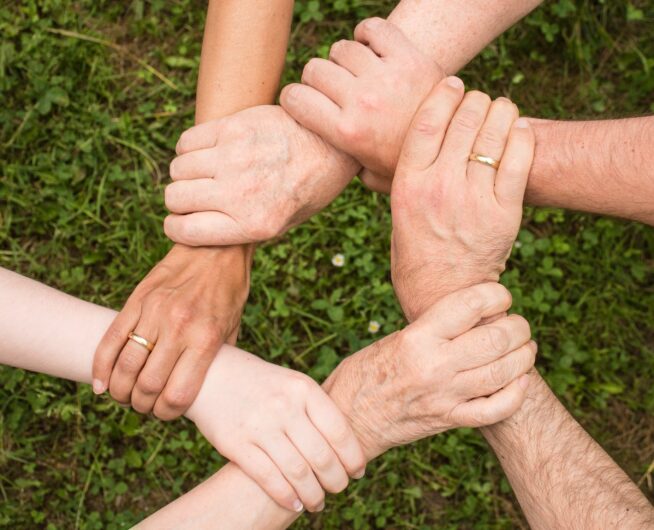What is standing between you finding success? What if I told you, it comes down to one big thing? Ego. Self-care is important and you have to look after your own needs, but when the focus is always on you, whether it’s negative or positive, it has a negative impact on your ability to make changes and develop success.
All of those thoughts racing around your brain every day are telling you to keep the focus on yourself, to maintain your focus on your problems, and let everyone else suffer. That’s an overwhelming level of pressure to put yourself under and even though you think it has you on the fast track to success the opposite is true.
It’s important that you look out for your needs, but you can’t push that so far that it directly compromises the feelings or needs of others. In doing so, you isolate yourself and you create an unhealthy lifestyle pattern that will negatively impact the people in your life and your future.
Signs You’re Self-Centered
Self-Hatred
When you think of someone who is self-centered your mind likely conjures up an image of someone who is completely obsessed with themselves. While you’re not wrong, what’s hiding underneath that image is a deeply insecure person trying to hide a bruised ego.
As a result of this, they try to maintain their sense of control, they might even project an air of superiority. Whatever it takes to give them a boost in the moment. In the long-term, however, it leads to self-hatred. These negative behaviors support negative beliefs and often, one of those beliefs is that others are better off without you.
Overly Sensitive
When you internalize and personalize absolutely every single thing that happens around you it turns everything that happens around you into an insult to you and assault on what you want. It feels as though other’s opinions reflect on you or their feelings about you.
This means that the decisions and behaviors of your friends, boss, colleagues, and your family members have some sort of impact on you even when they don’t. The more you start to obsess over these things as though they’re related to you, your needs, wants, or wishes, the more overly sensitive you become. Self-centered people take pretty much everything as a personal insult because they’re convinced everything is always about them.
Conflict
You’re always immersed in conflict because the only way to protect your fragile ego is by lashing out. In the words of Indian philosopher Jiddu Krishnamurti, “Isn’t the origin of conflict ego? If there is no ego there is no becoming.” The simplest definition of ego is that it destroys everything in its path.
Can’t Be Wrong
No matter what happens, self-centered people simply can’t be wrong. They can’t accept it, their ego can’t take it so they will do anything possible to shift blame. Self-centered people can only see the faults of others because they’re color-blind to their own.
Reciprocal Emotions
Self-centered people are happy to speak about their own emotions but don’t dare try to share yours with them. They’re not interested in being the shoulder, they only want shoulders to lean on. They also just don’t like to listen to others!
Attention-Grabbing
Self-centered people are world makers in that they like to create their environment and they adore their own voice. It’s that adoration that leads them to crave attention so they aim to ensure life revolves around them, whether it’s literal focus on them or the need for them to be the center of the schedule or someone’s world.
Passive-Aggressive
Selfish people are passive-aggressive because it allows them to feel in control of their environment. Passive-aggressive people are known for verbally complying with a request, but behaviorally delaying its completion. And the funny thing about passive-aggressive people is that they can smile and throw you under the bus, and then get you to apologize for getting upset about it.
How To Shed Selfishness & Be Community-Focused
Whether you have a history of self-centeredness or your selfishness has only recently crept in, you don’t have to live with it. You can create a more generous spirit, but it’s going to take some practice. I want you to know where to start. Take the tips below as a starting point to change your approach to life.
Active Listening
Selfish people often lack empathy because they struggle to look beyond themselves so the first step to being more community-focused is to work on your active listening skills. Communication is the foundation of good relationships and it’s a two-way street. Learn to listen to your colleagues, friends, and family and from there you will see outside of yourself and start to see things from other’s perspectives.
Active listening is a transformative skill and it doesn’t just negate your need to speak, it also removes your strict hold of the world revolving around you. Don’t listen to reply, listen for listening’s sake. Forget coming up with anecdotes to share or advice you would like to give, take the back seat, and let someone else drive the conversation.
Walk A Mile
When a selfish person is dealing with a problem there’s no room for anyone else to also be experiencing a problem. Their problem is the only one that exists and when they’re struggling or in pain, they simply can’t see anyone else’s pain or struggle. You have to force yourself to walk a mile in someone else’s shoes so you can see the world through their eyes.
That isn’t to say you don’t have your own struggles or pains, but it’s always good to remind yourself that other people are dealing with things too. So, when you’re angry because someone didn’t offer you enough sympathy think about what they might be dealing with privately. We’re all just human and we all have emotions, reactions, and responses we are dealing with.
A Free Pass
Believe it or not, you don’t have to get the last word in. When you take everything personally it’s difficult to let it go, but that’s exactly how you need to live. It’s great practice and it’s a good reminder that not everything is about you.
So, don’t snap back when your partner makes a comment you believe is unwarranted, don’t send an angry email in reply to your boss’ snide remark, and don’t reply rudely to the impatient person behind you at the coffee shop. This isn’t about being a pushover, it’s about learning to choose your battles. Not every negative moment requires your energy.
Break Bad Habits
Selfish behavior is a cycle and the only way to get over it is to break it. The only way to break bad habits is to build better habits. Take some time for reflection and work on one bad habit at a time. The more you practice the easier it will be to burst the self-centered bubble you’ve blown yourself up to live in.
Get Out There
The only way to be community-focused is to be out in the community so, how can you contribute to yours? It doesn’t matter if it’s your neighborhood, your workplace, church community, or your wider family.
Think of how you can make things better for the people around you. The more you start doing for others the easier it will be to consistently shift the focus away from you and towards being a part of the community. How can you volunteer your time and offer your effort?
It’s okay to take time for yourself and practice self-care, the issue is when it’s all self-care all the time because that isn’t self-care, it’s self-centeredness. The emptiest people on this planet are usually the ones fullest of themselves.
On the other hand, it’s been said that “community is where humility and glory touch,” and that “The greatness of a community is most accurately measured by the compassionate actions of its members.” That’s the power of community. That’s where we want to be.
In our quest to become more community-focused, I’d like to leave you with the following words of encouragement from the late and renowned American diplomat, politician, and activist Robert Sargent Shriver :
“In our society that is so self-absorbed, begin to look less at yourself and more at each other. Learn more about the face of your neighbor, and less about your own.” — Sargent Shriver
 George J. Ziogas is an HR Consultant with 15+ years of experience across a number of industries with a specialization in Occupational Health and Safety (OHS). He is a qualified vocational instructor/teacher and personal trainer. George is also a blogger and top writer in numerous categories/tags on Medium. He speaks several languages (English, Greek, Macedonian), and enjoys working out/keeping fit, music, reading, and traveling. He is married and lives in the beautiful Southern Highlands of New South Wales.
George J. Ziogas is an HR Consultant with 15+ years of experience across a number of industries with a specialization in Occupational Health and Safety (OHS). He is a qualified vocational instructor/teacher and personal trainer. George is also a blogger and top writer in numerous categories/tags on Medium. He speaks several languages (English, Greek, Macedonian), and enjoys working out/keeping fit, music, reading, and traveling. He is married and lives in the beautiful Southern Highlands of New South Wales.
Image courtesy of Pixabay.












